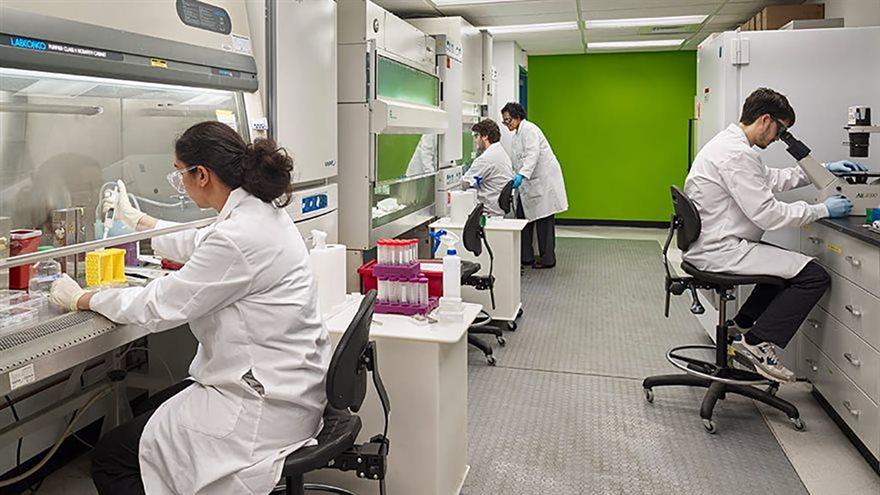Making Research Safer for Human Subjects: Q&A with Andrew Wechsler

Each volunteer participant in Drexel University’s 1,400 active research projects involving human subjects represents an opportunity to advance knowledge and save or improve lives. But each also represents a risk for human suffering and for irreparable damage to Drexel’s research enterprise if something goes wrong.
To mitigate that risk, Drexel researchers set out to ensure that their protocols for protecting human subjects met the very highest standards, culminating this summer in full accreditation by the Association for the Accreditation of Human Research Protection Programs (AAHRPP). Fewer than 200 research organizations in the world hold AAHRPP accreditation, including fewer than 100 academic institutions.
Andrew Wechsler, MD, a professor of cardiothoracic surgery in the College of Medicine, chairs one of the University’s three Institutional Research Boards (IRBs) responsible for approval of human subject research. DrexelNow asked Wechsler, who is also a heart surgeon and researcher known for his work in protecting hearts against ischemic injury and reconstructing damaged hearts, for some insight into the implications of AAHRPP accreditation.
How much effort went into the process of seeking accreditation?
It was a complex process that involved bringing in outside experts and consultants and educating IRB chairs and members, investigators, staff in the Office of Human Research Protection and clinical study coordinators. The person who championed and led the effort was Donna Walsh [chief operating officer for clinical research operations in the College of Medicine], who was just amazing throughout the process. All of the IRB chairs had to be knowledgeable about procedures involved, were examined by a team from AAHRPP and were responsible for implementing AAHRPP’s standards.
What prompted researchers to undertake such an arduous task?
We want to encourage high-quality clinical research at Drexel, and one marker is compliance with the highest level of human research protection.
Also, let’s just say that the IRBs several years ago were intermittently dysfunctional. Rather than having a collaborative and supportive relationship with investigators, the sense was that the IRBs were inconsistent in their approach to protection of human subjects and occasionally confrontational and even obstructionist in their relationships with investigators. The application for approval of human-subject research was not standardized as measured by the process used by leading research institutions.
How has human subject protection evolved at Drexel through this process?
The AAHRPP wanted to see the extent we were conforming with best practices. That involves using a predictable and standardized approach. It’s added a huge element of predictability. Everyone knows what forms they have to fill out, each of the administrative people can apply the appropriate form to each research proposal. So by the time a proposal comes to the IRB, there’s real standardization, which makes the process efficient, consistent and fair. Along with this came a different attitude in the Human Research Protection office: How can we help the investigator do their science while providing maximum protection for human subjects involved in the research?
Now, when an investigator submits a protocol with some concerns, the IRB can approve it pending modifications. On the rare occasions when approval can’t be recommended, the investigators get specific reasons and the opportunity to come before the IRB and explain their proposal and receive suggestions.
What are the implications of accreditation for the institution?
We think if you make it easier to do clinical research, more investigators will do it, and Drexel needs to increase its clinical research given the economics of academic medical centers, which in addition to revenues from basic research grants, clinical practice and tuition, derive substantial revenues from doing good clinical investigation.
To some extent, AAHRPP accreditation is a marketing tool. You have a rigorous stamp of approval that will have a huge impact on private research organizations like pharmaceutical companies who are looking for research partners. It also helps with National Institutes of Health grants, Department of Defense grants and multi-institutional investigations.
There are implications for education as well. For many grad students, having a research project is a critical part of their experience. By having a facilitated process, they are able to get their research proposals approved in a more timely fashion, and they get more useful feedback.
What message does the accreditation send to peers in academics and research?
It identifies Drexel as an institution that takes clinical research seriously, and is willing to invest in the resources it takes to do highly responsible research that involves human subjects.
In This Article
Drexel News is produced by
University Marketing and Communications.
